Sudan: Tigray refugees settle in but worry about missing relatives
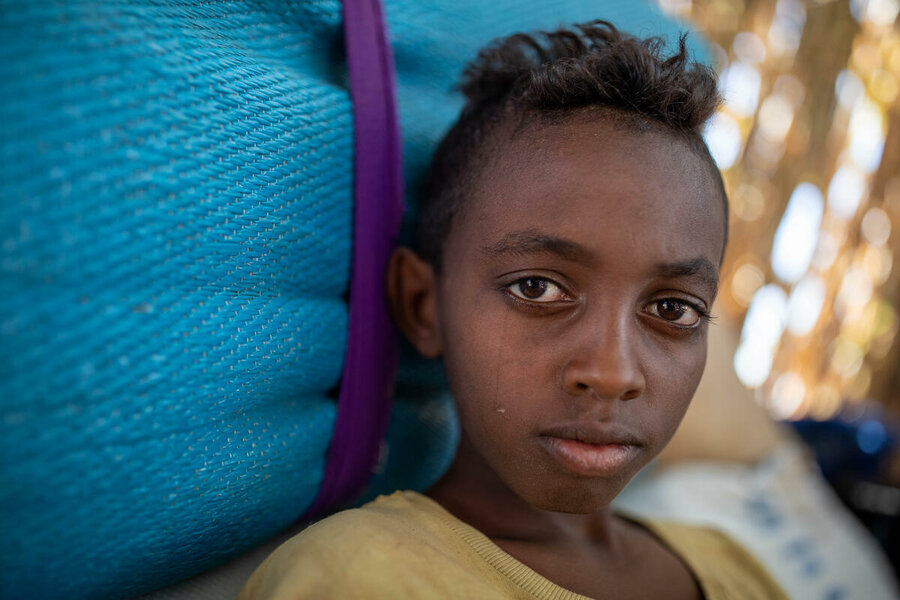
The names of people featured in this article have been changed to protect identities
At first glance, a sense of normalcy and routine seems to have settled in at the Um Rakuba refugee camp in eastern Sudan, where tens of thousands of people escaping Ethiopia’s Tigray region are adjusting to their new lives.
Since November, an estimated 60,000 refugees have crossed the border to escape violence. The World Food Programme (WFP) is playing a critical role in providing life-saving food and nutrition support in Um Rakuba.
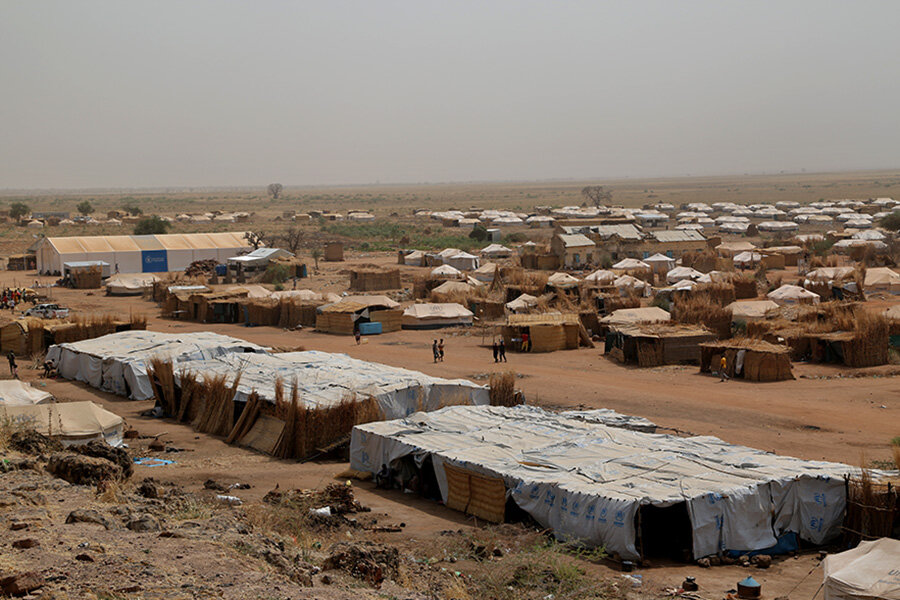
Small shops run by the refugees sell household essentials. They've built cooking stoves out of mud and water and started to till the land. Youth leaders organize cultural events. Families play cards in huts woven out of straw mats.
Missing the sort of food they had at home, many are finding ways to cook traditional recipes. Using sorghum and oil provided by WFP, one man is making bombolinos — Ethiopian donuts — that he sells on the roadside.
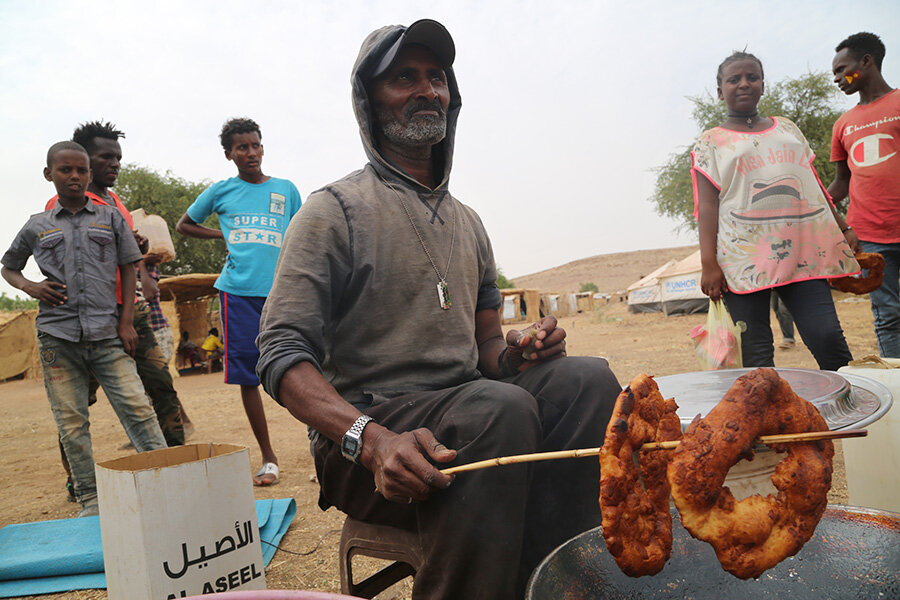
Men riding down the streets on donkeys, pulling carts laden with bags of food distributed by WFP serve as a reminder, though, that the situation here is anything but normal. People here left everything behind when they fled and rely on food and other assistance from humanitarian agencies like WFP.
Still, it's a far cry from scenes of newly arrived families crowded under large shelters trying to escape the heat of the sun while waiting for help late last year.
People did not have stoves to cook their own food so hot meals were prepared for them in huge pots. These have since been stored away, a sign that things are improving, and people are at least able to make their own meals.
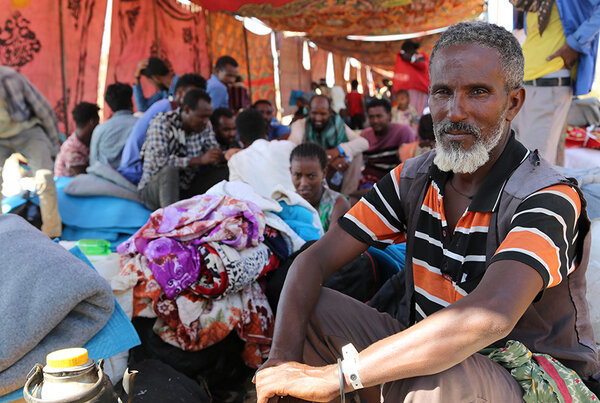
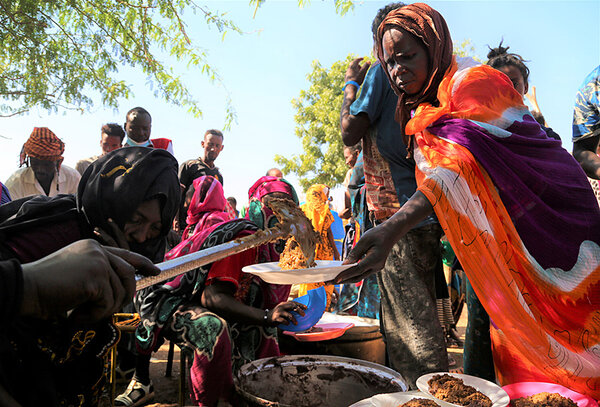
Amid the hustle and bustle of the camp, people reveal glimpses of the pain and loss they have endured.
Haftom is among more than 20,000 people in Um Rakuba receiving monthly food rations from WFP. The 28-year-old stands patiently in line for the salt, oil and bags of sorghum and yellow peas that he then loads onto a cart.
His wide smile and playful demeanour quickly disappear when he starts to explain what he went through when conflict erupted in Tigray. It’s hard for him to talk about it, he says, because he’s afraid of repercussions and hesitant to go into much detail.
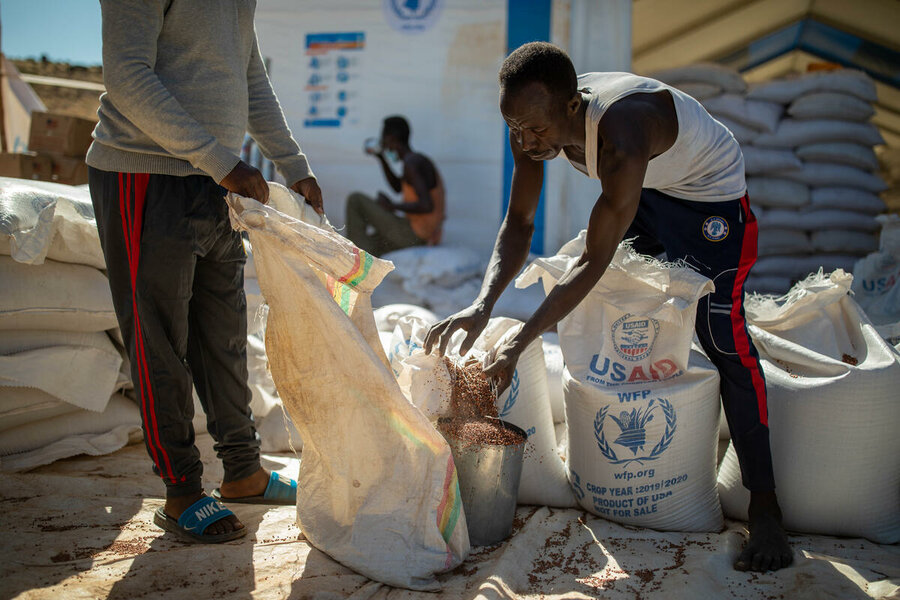
What he does share, though, is that he lost track of his family, so he crossed the border from Ethiopia into Sudan, along with thousands of others, hoping he would be reunited with them in one of the camps.
“It is not like my country here”, he says, “but at least I feel safe. The food is good, at least it is enough to survive.”
There is a sense of relief on his face that is quickly overshadowed by fear — fear for the whereabouts and wellbeing of his family, whom he has not been able to find.
Tears stream down his face when he speaks of his younger brother, Gebre, who is almost like a son to him, he explains. He helped raise him when their mother died.
Gebre may be among 17,000 refugees who have yet to be settled into either of the two refugee camps set up in Sudan's Gederaf state.
At the Hamdayet reception centre on the border, for instance, WFP is working around the clock to provide monthly food rations.
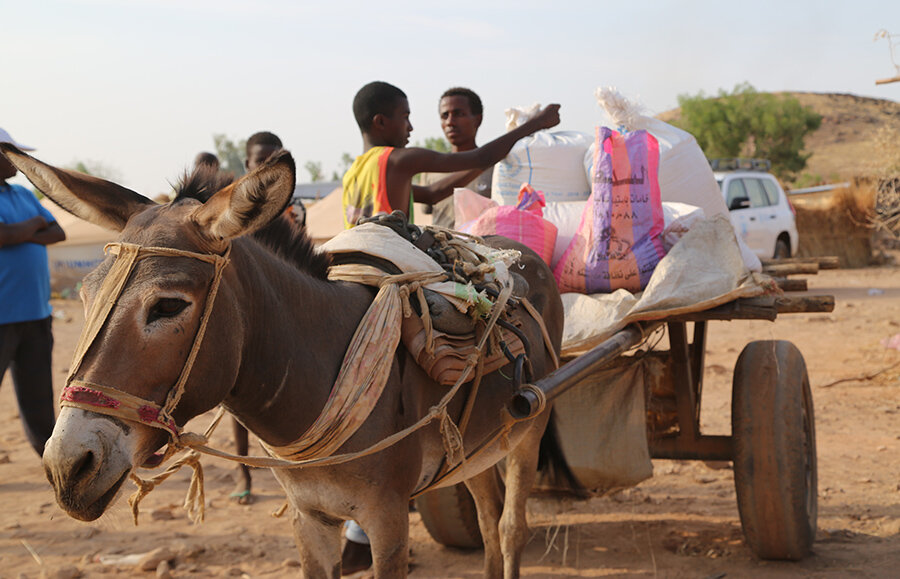
Months of communication blackout in Tigray have left Haftom and so many others without word from their loved ones back home. This silence only makes the uncertainty about what may have happened to their families harder to bear.
While the people who have settled in refugee camps in Sudan are now receiving regular support, an estimated 3 million people within Tigray need emergency food assistance.
Since gaining access to the Tigray region, WFP has moved 19,775 tons of food to four locations: Adi Harush, Mai Aini, Mekelle and Shire.
As people in Tigray and those crossing into Sudan continue to receive food and nutrition support from WFP and partners, Haftom can only hope that his brother and other family members are among those receiving assistance.
Flexible funding from Germany, Norway, Switzerland, the UK and the US has enabled WFP to divert US$5.2 million from other humanitarian programmes in Sudan towards the immediate response to refugees at the start of this emergency.
WFP Sudan has also received US$800,000 from Japan and €15,000 from Andorra for the refugee response in eastern Sudan.
Despite these generous contributions and efforts, WFP Sudan still requires US$121.8 million in funding for its overall operations through July, of which US$8.6 million is needed to sustain food assistance and nutrition support for refugees arriving from Tigray over the coming four months.
Learn more about WFP's work in Sudan
You can help – download the Share the Meal app and share a meal with refugees from Tigray.
